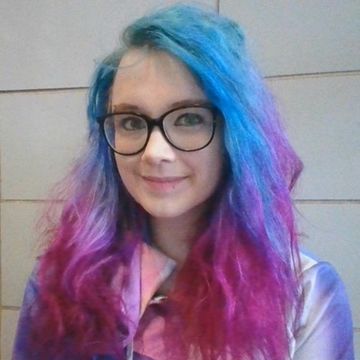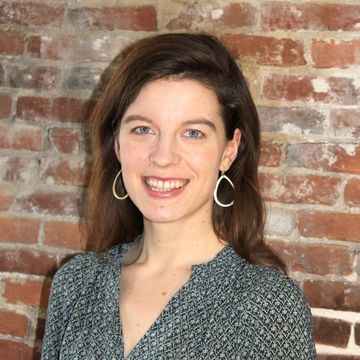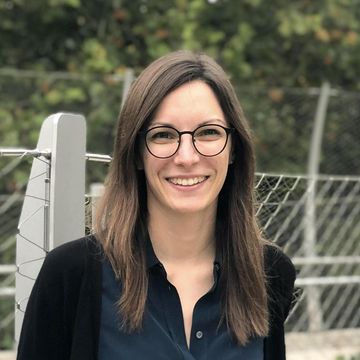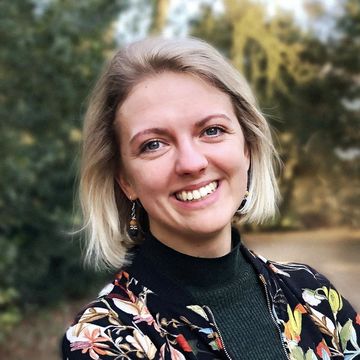Alumni
2022
Mia de los Reyes earned a doctorate in astrophysics at Caltech, where she studied the formation and evolution of galaxies, especially low-mass “dwarf galaxies.” As a Science Fellow, she investigated how the Milky Way and nearby galaxies differ from others in the universe. She was an active member of Astrobites, an international team of graduate students who make astrophysical research accessible to the general public. Mia is an Assistant Professor of Astronomy at Amherst College.
2021
Brian Hie is interested in using technology to understand interactions between pathogens and their host organisms. As a doctoral student in electrical engineering and computer science at MIT, he developed novel applications of machine learning to biology and achieved important insights into viral mutation, and he is first author of papers appearing in venues such as Science and Nature Biotechnology. Brian has worked as a software engineer for Google X, Salesforce, and Illumina and holds three patents. He currently holds a joint appointment as an Assistant Professor in the Departments of Data Science and Chemical Engineering at Stanford.
Maggie Miller obtained her PhD from Princeton University where she was an NSF Graduate Fellow. Before coming to Stanford, Maggie was an NSF Postdoctoral Fellow at MIT. Maggie is a Clay Research Fellow. She works on geometric topology and is interested in understanding surfaces in 4-dimensions. At Stanford Maggie broadened her work on topology of low-dimensional manifolds to include modern ideas from gauge theory. She is an Assistant Professor of Mathematics at the University of Texas-Austin.
2020
Cody Aldaz studied chemistry at the University of New Mexico and the University of Michigan. He has received support for his work from the Department of Energy and the California Alliance Research Exchange, which brought him to Stanford as a visiting graduate student in 2018, where he pursued collaborations spanning the areas of photochemistry, computational chemistry, organic chemistry, and spectroscopy. As a Stanford Science Fellow, he continued his work developing materials for application in medicine, defense technology, and other fields. Cody is currently a data scientist at Acelot.
Ina Anreiter is a behavioral biologist and geneticist with interests in human development, neuroscience, and computer science. She studied at the University Lisbon and the University of Toronto, where she earned a PhD in Ecology and Evolutionary Biology. In 2019–20 she was a Schmidt Science Fellow and a visiting researcher at the Ontario Institute for Cancer Research. She is currently developing computational tools for the study of genetics and furthering her research on the long-term effects of environment and experience on biological processes. Ina is now an Assistant Professor of Ecology & Evolutionary Biology at the University of Toronto. Congratulations, Ina!
Sarah Cooley holds a PhD in Earth, Environmental and Planetary Sciences from Brown University. Cooley’s research focuses on harnessing miniature satellites to remotely study greenhouse methane emissions from Arctic waters. She is passionate about building a stronger community of women and underrepresented minorities in her field and seeks opportunities to engage with, and learn from, the Indigenous Arctic residents of the regions she studies. Cooley is currently an Assistant Professor of Geography at the University of Oregon. Congratulations to Sarah, the Stanford Science Fellows program's first alum!
Ivana Cvijović holds a PhD in Systems Biology from Harvard. As a Lewis-Sigler Theory Fellow at Princeton, she studied how populations of white blood cells, the basis of the immune system, evolve over the course of an individual’s lifetime. Her work combines evolutionary theory and the methods of physics and mathematics to understand how mutation and natural selection shape genetic diversity within large populations. After completing the Stanford Science Fellows program, Ivana is continuing her research at Stanford.
Caleb Lareau studied biochemistry and mathematics at the University of Tulsa and biostatistics at Harvard. With support from the National Cancer Institute, he conducted his doctoral research at Harvard Medical School and the Broad Institute, where he developed new biotechnical and computational tools for understanding the genetic mechanisms underlying blood production in humans. As a Stanford Science Fellow, he collaborated with researchers in the School of Medicine to understand genetic relationships among cells in the human body and investigate how cells respond to damage and disease. Caleb is now an Assistant Professor in the Computational & Systems Biology program at the Sloan Kettering Institute.
Shankari Rajagopal earned her PhD in physics from the University of California, Santa Barbara, where she earned her PhD. She has been active in mentoring and outreach. As a Science Fellow, Shankari pursued experimental investigations of novel phases of matter as a Science Fellow. She is continuing her research in the Schleier-Smith lab at Stanford.
Viktoryia Shautsova received her bachelor’s degree in computer science from Belarus State University and a PhD in physics from Imperial College London. She draws upon her deep knowledge in physics, material science, neuroscience and biology to develop nanoscale brain-computer interfaces for studying the human brain that could one day be allow people to interact with artificial intelligence systems. Viktoryia is continuing her research at Stanford.
Alfredo Valencia earned a doctoral degree in chemical biology from Harvard where he conducted research at the Dana-Farber Cancer Institute. He was also an active member of the Minority Biomedical Scientists of Harvard and received recognition as a Diversity and Inclusion Fellow. Alfredo is also the recipient of a Ford Foundation Postdoctoral Fellowship. As a Stanford Science Fellow, he continued his work on genetics and developmental disorders. He is continuing his research in the Pasca lab at Stanford.










